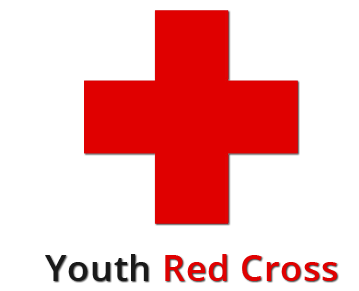Youth Red Cross

The Indian Red Cross Society is a worldwide, well known, universally accepted, admired and internationally identified humanitarian service organization. Youth Red Cross is one of the wing of Indian Red Cross Society. It is a movement organized at the college level for students between 18 to 25 years of age. It organizes relief and assistance without discrimination to the victims of armed conflicts, endeavors to mitigate and alleviate the human sufferings wherever and whenever the naturals/ manmade disasters cripple the society.
It is the biggest, independent non-religious, non-political, non-sectarian and voluntary relief organization. Young volunteers can make a significant contribution to meeting the needs of the most vulnerable people within their local communities through Youth Red Cross Programme. To involve young people as much as possible in the movement and its activities not only as workers and also as beneficiaries, but as partners in management.
The Indian Red Cross’s programmes are grouped into four main core areas: Promoting humanitarian principles and values; Disaster response; Disaster preparedness; and Health and Care in the Community. The Red Cross promotes Humanitarian values, which encourage respect for other human beings and a willingness to work together to find solutions to problems. From the seven fundamental principles, the movement aims to influence the behaviour of people.
OBJECTIVES:
As a movement of the youth, YRC seeks to:
- To make them understand and accept civic responsibilities, and act accordingly with humanitarian concern.
- To enable the growth and development of a spirit of service and sense of duty with dedication and devotion in the minds of the youth.
- To foster friendly relationship with all without any discrimination.
- Encourage community service through training and education
FUNDAMENTAL PRINCIPLES:
- Humanity: The International Red Cross and Red Crescent Movement, born of a desire to bring assistance without discrimination to the wounded on the battlefield, endeavors, in its international and national capacity, to prevent and alleviate human suffering wherever it is found. Its purpose is to protect life and health and to ensure respect for human beings. It promotes mutual understanding, friendship, cooperation and lasting peace amongst all people,
- Impartiality: It makes no discrimination as to nationality, race, religious beliefs, class or political opinions. It endeavors to relieve the suffering of individuals, being guided solely by their needs, and to give priority to the most urgent cases of distress.
- Neutrality: In order to continue to enjoy the confidence of all, the Movement may not take sides in hostilities or engage at any time in controversies a political, racial, religious or ideological nature.
- Independence: The Movement is independent. The National Societies, while auxiliaries in the humanitarian services of their governments and subject to the laws of their respective countries, must always maintain their autonomy so that they may be able at all times to act in accordance with the principles of the Movement.
- Voluntary Service: It is a voluntary relief movement not prompted in any manner by desire for gain.
- Unity: There can be only one Red Cross or one Red Crescent society in any one country. It must be open to all. It must carry on its humanitarian work throughout its territory.
- Universality: The International Red Cross and Red Crescent Movement, in which all societies have equal status and share equal responsibilities and duties in helping each other, is worldwide.
